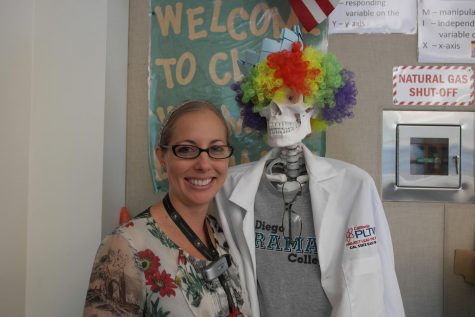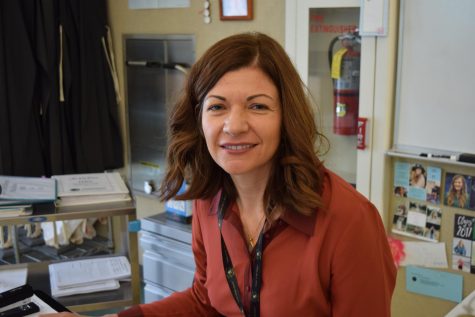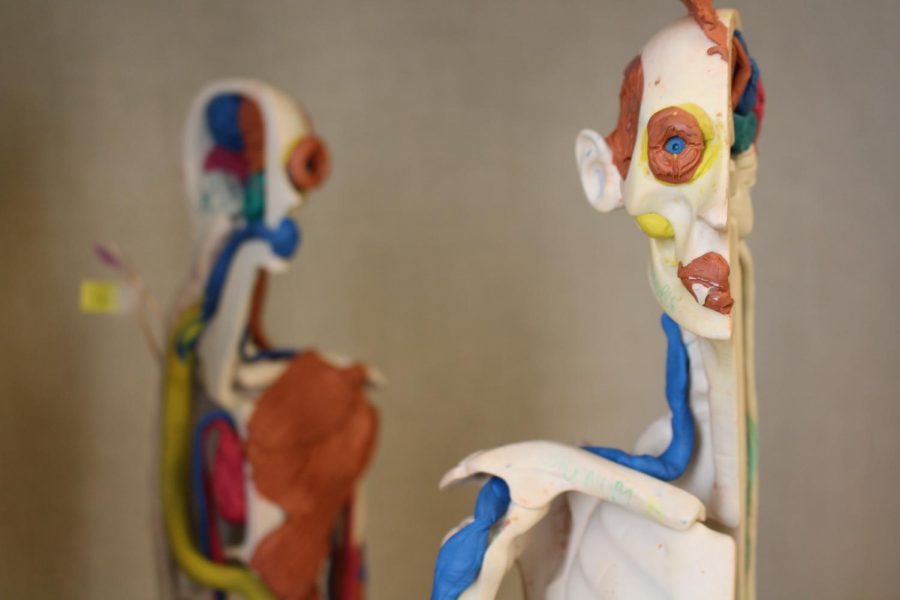Biomedical Sciences

Juli Bachman, a bio-med teacher.
Principles of Biomedical sciences is the first year of the biomed track and is taught by Juli Bachman. According to the Principles of Biomedical sciences syllabus, Principles of Biomedical Sciences (PBS) provides an introduction to the biomedical sciences through exciting hands-on projects and problems. Students will determine the factors that led to the death of a fictional woman as they sequentially piece together evidence found in her medical history and her autopsy report. The activities and projects introduce students to human physiology, basic biology, medicine, and research processes and allow students to design experiments to solve problems. This course is designed to provide an overview of all the courses in the biomedical sciences program and lay the scientific foundation for subsequent courses.
Human Body systems is the second year of the biomed track and is taught by Valerie Park. According to the Human Body systems syllabus, in Human Body Systems (HBS), students examine the interactions of human body systems as they explore identity, power, movement, protection, and homeostasis. Exploring science in action, students build organs and tissues on a skeletal Manikin®; use data acquisition software to monitor body functions such as muscle movement, reflex and voluntary action, and respiration; and take on the roles of biomedical professionals to solve real-world medical cases.
Medical Interventions is the third year of the biomed track and is taught by Juli Bachman. According to the Medical Interventions syllabus, Medical Interventions (MI) is the third course in the Biomedical Sciences Program. During the course, students follow a fictitious family and learn how to prevent, diagnose and treat a variety of diseases and ailments. Topics include infection and infectious agents, DNA analysis, cancer, and organ failure. Through case-studies, laboratory activities, research and projects, students discover current diagnostic and treatment options as well as what careers are involved in these fields.

Valerie Park, a bio-med teacher.
Biomedical Innovation is the fourth and last year of the biomed track and is taught by Valerie Park. According to the Biomedical Innovation syllabus in the final course of the PLTW Biomedical Science sequence, students build on the knowledge and skills gained from previous courses to design innovative solutions for the most pressing health challenges of the 21st century. Students address topics ranging from public health and biomedical engineering to clinical medicine and physiology. They have the opportunity to work on an independent design project with a mentor or advisor from a university, medical facility, or research institution.
“I really like that a lot of the labs are really hands on so things you learn about in your bio or your chem classes you get to apply directly through labs…and they can also be more career specific then what you learn in your general ed classes.” said senior Alexis McBride
“All the hands on stuff for me personally was really good and it helped me learn a lot.” said senior Maanasee Deshmukh.
“I really like that a lot of the labs are really hands on so things you learn about in your bio or your chem classes you get to apply directly through labs…and they can also be more career specific then what you learn in your general ed classes.” said senior Alexis McBride
“All the hands on stuff for me personally was really good and it helped me learn a lot.” said senior Maanasee Deshmukh.

